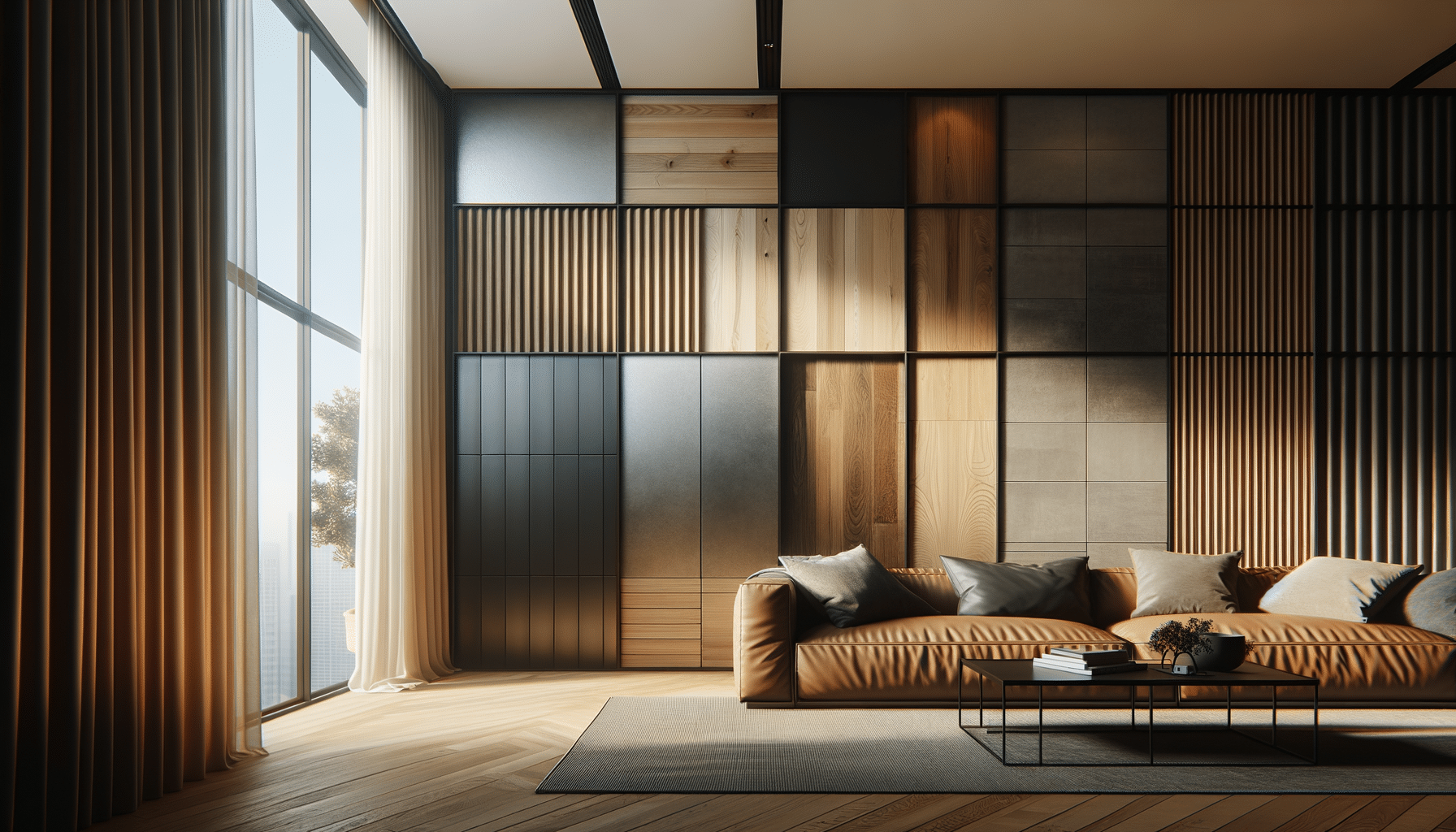
Choosing the Right Wall Panels for Modern Home Design
Introduction to Wall Panels
Wall panels have become an integral element of modern home design, offering both aesthetic appeal and functional benefits. As architectural trends evolve, wall panels provide an opportunity to infuse character and style into any room. Their versatility allows homeowners to experiment with different textures, colors, and materials, creating a personalized environment that reflects their tastes.
With a wide range of options available, from classic wood to contemporary metal, wall panels can be tailored to suit various design preferences. They not only enhance the visual appeal of a space but also contribute to improved acoustics, insulation, and durability. Understanding the different types of wall panels and their specific applications can help homeowners make informed choices that align with their design goals.
Types of Wall Panels
Wall panels come in a myriad of types, each offering unique characteristics and benefits. Here are some popular options:
- Wood Panels: Known for their timeless appeal, wood panels add warmth and elegance to interiors. They are available in various finishes, from natural grains to painted surfaces, making them adaptable to both traditional and modern settings.
- Metal Panels: These panels offer a sleek, industrial look that is perfect for contemporary or minimalist designs. They are durable and often used in commercial spaces but can also make a striking statement in residential areas.
- Glass Panels: Ideal for creating a sense of openness and light, glass panels are often used in partitions or as decorative features. They can be frosted, tinted, or etched to provide privacy while maintaining an airy feel.
- Fabric Panels: These panels are excellent for enhancing acoustics and adding texture to a room. They are often used in theaters, studios, and home offices to absorb sound and reduce noise levels.
- Stone Panels: Offering a natural and rustic charm, stone panels are durable and can be used both indoors and outdoors. They add a touch of luxury and are often seen in feature walls or fireplaces.
Each type of panel offers distinct advantages, and the choice will largely depend on the intended use and desired aesthetic.
Benefits of Using Wall Panels
Wall panels are not just a design element; they offer several practical benefits that enhance the functionality of a space:
- Insulation: Many wall panels provide additional insulation, helping to regulate temperature and reduce energy costs. This is particularly beneficial in regions with extreme weather conditions.
- Soundproofing: Certain panels, such as fabric or acoustic panels, can significantly reduce noise levels, creating a more serene and comfortable environment.
- Durability: High-quality panels are resistant to wear and tear, making them a long-lasting choice for busy areas. They protect walls from damage and can be easily cleaned and maintained.
- Easy Installation: Many wall panels are designed for quick and easy installation, allowing homeowners to update their interiors with minimal disruption.
- Versatility: With a vast array of styles and materials, wall panels can be customized to fit any design theme, from rustic to ultra-modern.
These benefits make wall panels a compelling choice for those looking to enhance both the form and function of their living spaces.
Choosing the Right Wall Panels for Your Home
When selecting wall panels, several factors should be considered to ensure they complement the overall design of the home:
- Material: Consider the durability, maintenance, and visual appeal of different materials. Wood offers warmth, metal provides a contemporary edge, and glass creates an open feel.
- Style: The style of the panel should align with the existing decor. Whether aiming for a rustic, modern, or eclectic look, choose panels that harmonize with the overall theme.
- Functionality: Determine the primary purpose of the panels. If soundproofing is a priority, fabric or acoustic panels may be appropriate. For added insulation, consider options that enhance energy efficiency.
- Budget: Wall panels come in a range of price points. Establish a budget that balances quality with affordability, ensuring the panels meet both aesthetic and financial criteria.
- Space Considerations: The size and layout of the space will influence panel selection. Larger panels may be suitable for open areas, while smaller panels can add detail to compact spaces.
Taking the time to evaluate these factors will assist in selecting wall panels that not only enhance the home’s interior but also serve practical purposes.
Conclusion: Transforming Spaces with Wall Panels
Wall panels offer a versatile solution for modern home design, allowing homeowners to express their creativity while enhancing the functionality of their spaces. By understanding the various types of panels available and considering factors such as material, style, and budget, one can make informed choices that align with their design vision.
Whether aiming to create a cozy, warm atmosphere with wood panels or a sleek, modern look with metal, the possibilities are endless. Wall panels not only elevate the aesthetics of a room but also contribute to improved insulation, soundproofing, and durability.
Incorporating wall panels into home design is an investment in both style and practicality, offering a transformative impact that can be enjoyed for years to come.


